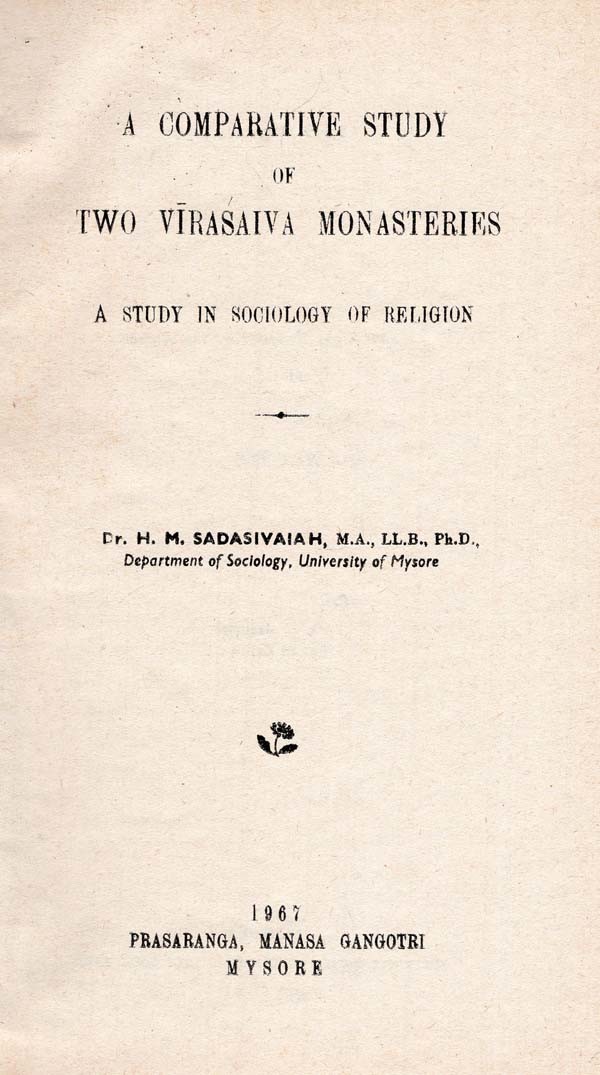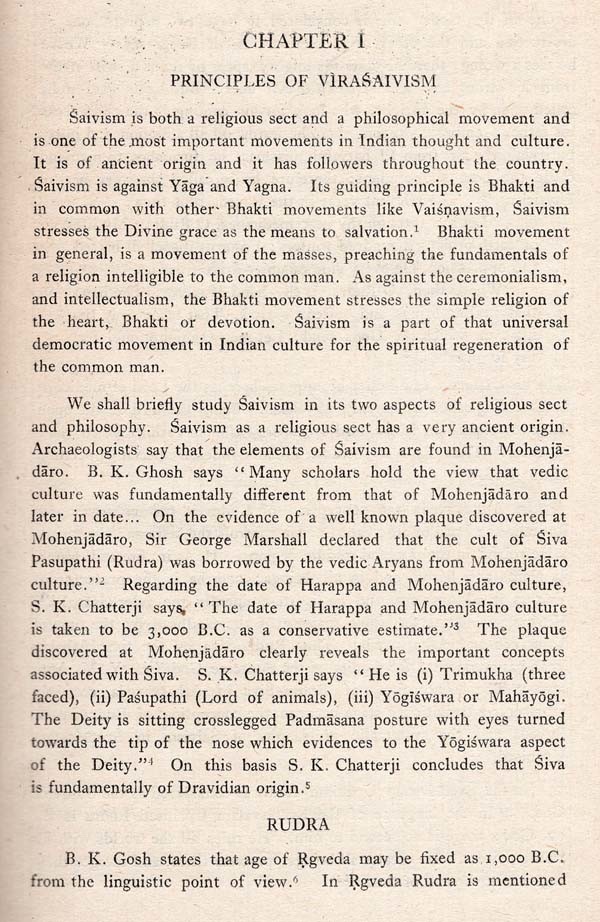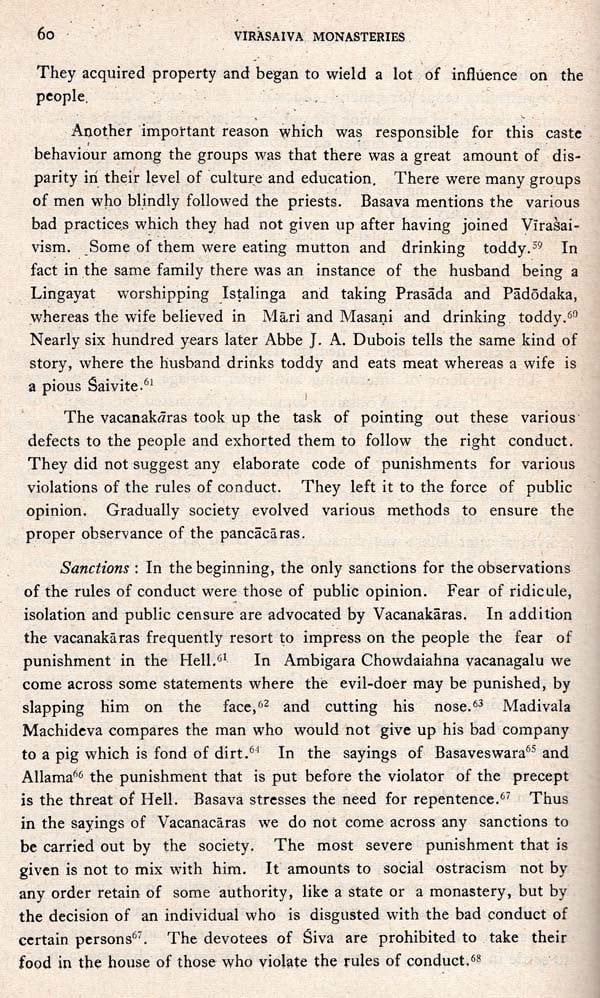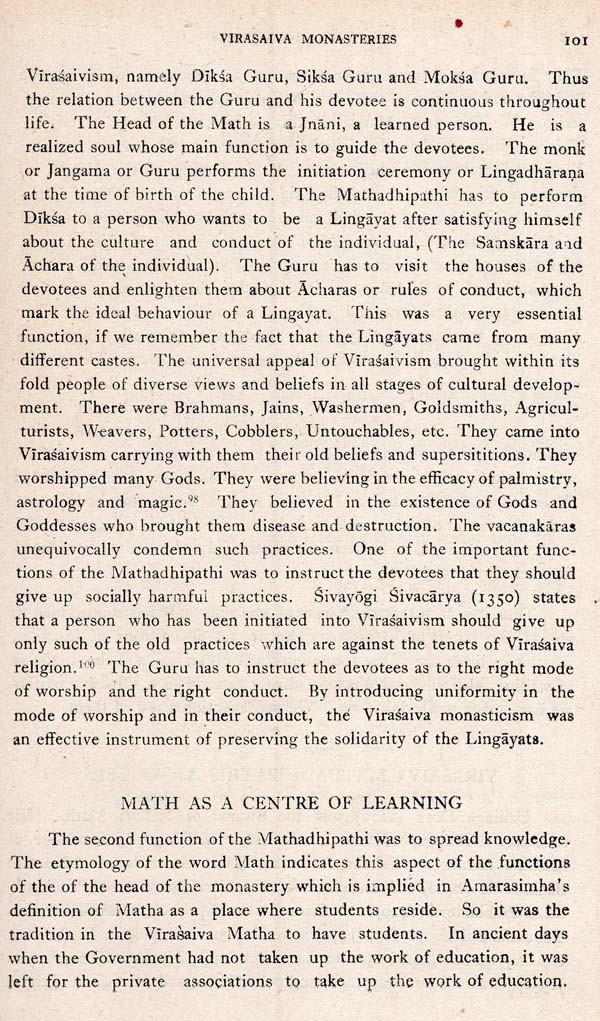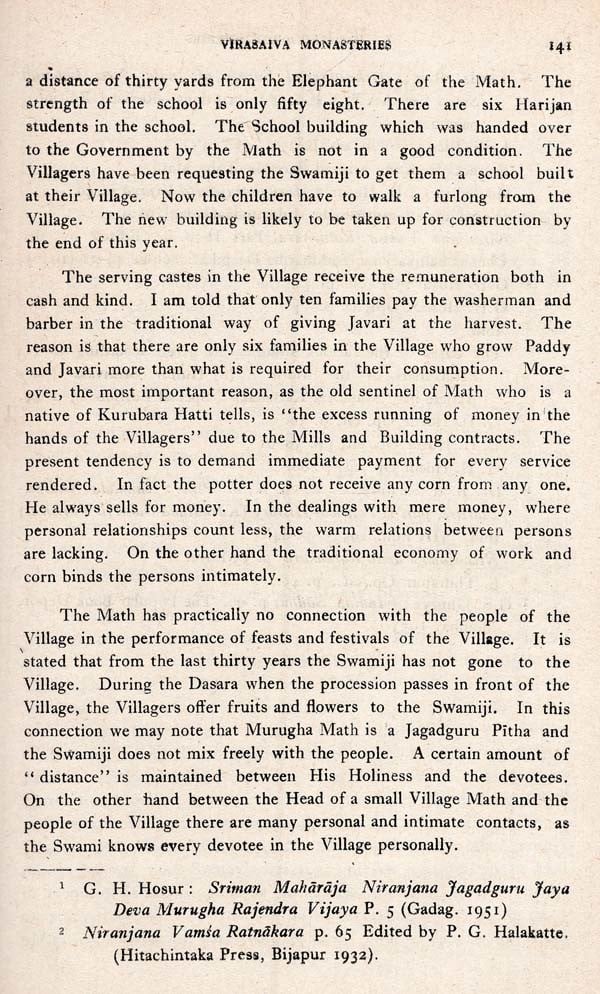
A Comparative Study of Two Virasaiva Monasteries- A Study in Sociology of Religion (An Old and Rare Book)
Book Specification
| Item Code: | AZE210 |
| Author: | H.M. Sadashivaiah |
| Publisher: | University of Mysore, Mysore |
| Language: | ENGLISH |
| Edition: | 1967 |
| Pages: | 382 |
| Cover: | HARDCOVER |
| Other Details | 10.00x6.50 inches |
| Weight | 560 gm |
Book Description
I am happy that the University of Mysore is publishing this thesis giving the imprimatur of its approval to a work of scholarly and sociological merit.
The plan of the Thesis may be broadly indicated as follows: The introductory Chapter deals with the broad outlines of the scope of the Thesis.
In the First Chapter, the Principles of Virataivism are studied in the background of other Saiva schools. Such a study brings to light the connection between Virasaivism and other Saiva schools, particularly Saiva Siddhanta and Kashmir Saivism The origin of Virasaivism, and the part played by Basava in spreading the tenets of the Faith are briefly indicated. The nature of Vacanas, the basic authoritative texts of Virasaivism is indicated briefly. It is further shown that Virasaivism is Vedic. The aim of the Virasaiva is to realize Linganga Samarasya, the complete fusion of the individual soul with the universal soul. This goal is realised gradually by various stages known as 'gatsthala or six stages. The individual in his journey towards the ultimate goal takes the help of Astavarana or eight aids. The examination of the concepts of Astavarana and Satsthala indicate the absolute necessity of right conduct and also the close connection between the individual and the society.
The Second Chapter deals with the ethic-social basis of Virasaivism. The rules of conduct prescribed to an individual by Pancha-charas indicate the necessity
The etymology of the word religion suggests that religion as worship and religion as a system of social relationships are basic aspects of religion which have great influence on social life. "The word religion may have derived from the Latin relegate, to bind together, or from religere, to rehearse, to execute painstakingly suggesting both group identity and ritual". Religion thus has a vital social bearing. "A complete religion, however is a social phenomenon; it is shared; it takes on many of its most significant aspects only in the interaction of the group. Both the feelings from which it springs and the solutions it offers are social, they arise from the fact that man is a group-living animal". The relation between religion and society is however a complex problem. This can only be understood by an analytic and descriptive study of religion. A scientific and objective account of the religious behavior of a particular community will enable us to grasp the nature of this aspect of the function of religion. This will also facilitate us to understand the relation of religion to the social structure.
Virasaivism is one of the most popular religions in south India, particularly in the Mysore State.
**Contents and Sample Pages**
